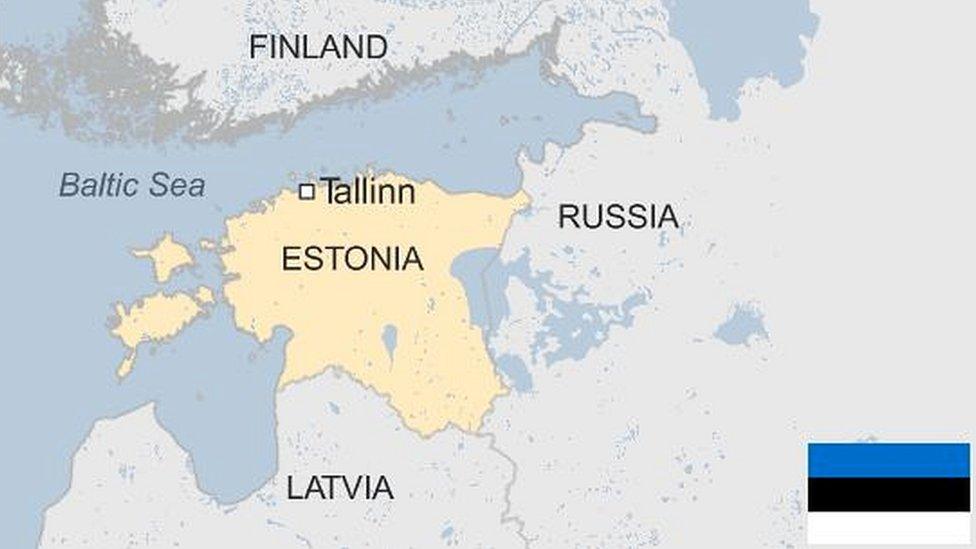Estonia 'plans Russia border fence' amid Ukraine tensions
- Published
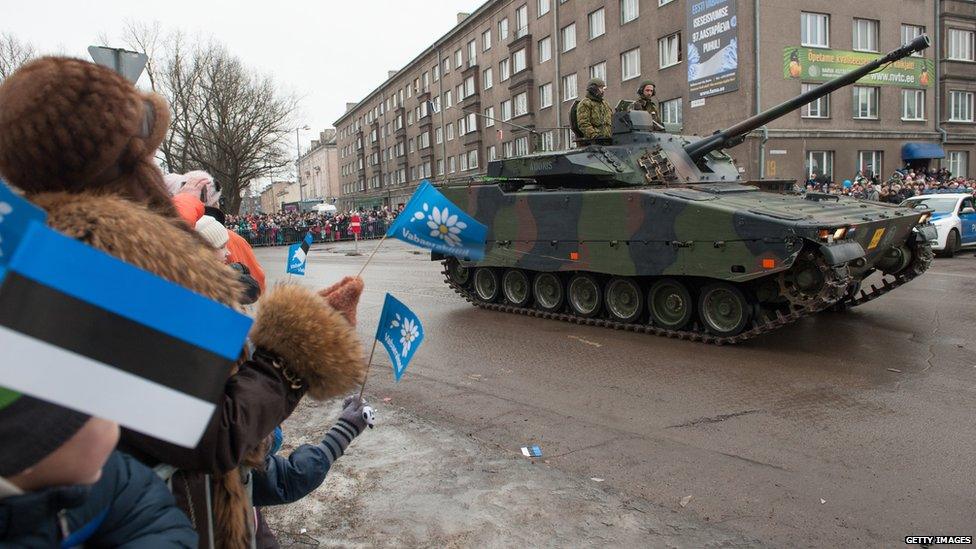
Estonia is concerned about the potential threat from Russia following the annexation of Crimea and conflict in eastern Ukraine
Estonia says it wants to build a fence along its eastern border with Russia to boost security and protect the EU's passport-free Schengen zone.
Construction on the fence, planned to be about 110km (70 miles) long and 2.5m (8ft) high, is set to start in 2018.
It is expected to cost about €71m (£52m; $80m), according to reports.
The plans come amid heightened tensions between Russia and the West over the Ukraine conflict. Europe is also struggling with an influx of migrants.
"The aim of the construction is to cover the land border with 100%, around-the-clock technical surveillance to create ideal conditions for border guarding and to ensure the security of Estonia and the Schengen area," interior ministry spokesman Toomas Viks told AFP news agency.
He said information gathered could be used to investigate illegal border crossing, smuggling and human trafficking.
The fence would only cover just over a third of Estonia's 294km (183 miles) border with Russia as much of it is covered by water, Estonia's Postimees newspaper reports.
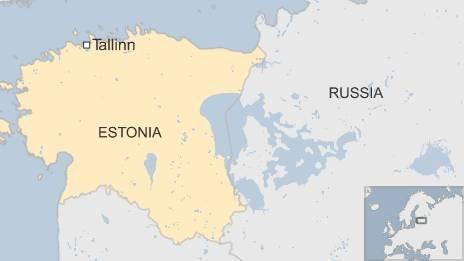
The former Soviet nation is among the EU member states to have borders on the external boundaries of the Schengen zone, which enables passport-free travel.
Another such country, Hungary, has already started building a controversial 175km-long fence along its border with Serbia to try to keep migrants out. Officials say thousands of people cross into the country every day as they head north into Europe and Germany in particular.
However the focus of the migrants crisis in recent months has been in the Western Balkans, rather than Estonia. Migrants have also continued to make the perilous crossing to Europe via the Mediterranean from Libya.
'Ideological aim'
Meanwhile Konstantin Kosachev, deputy head of the Russian parliament's foreign affairs committee, has condemned the plan for the fence, according to local media.
He said Estonia did not face the same migrants challenge as other EU countries and that the aim instead was ideological - to depict Russia as a threat to Europe.
Earlier this month Russia jailed Estonian security official Eston Kohver to 15 years in prison for spying in a case that provoked a diplomatic row.
Kohver was detained at the Russian border last September, with Estonia and the EU insisting he was on Estonian soil and Russia saying he was on Russian territory.
Estonia joined Nato and the EU in 2004.
Both bodies accuse Russia of directly helping separatists in eastern Ukraine with regular troops and heavy weapons. Russia denies the claims.

Great divides: Past and present
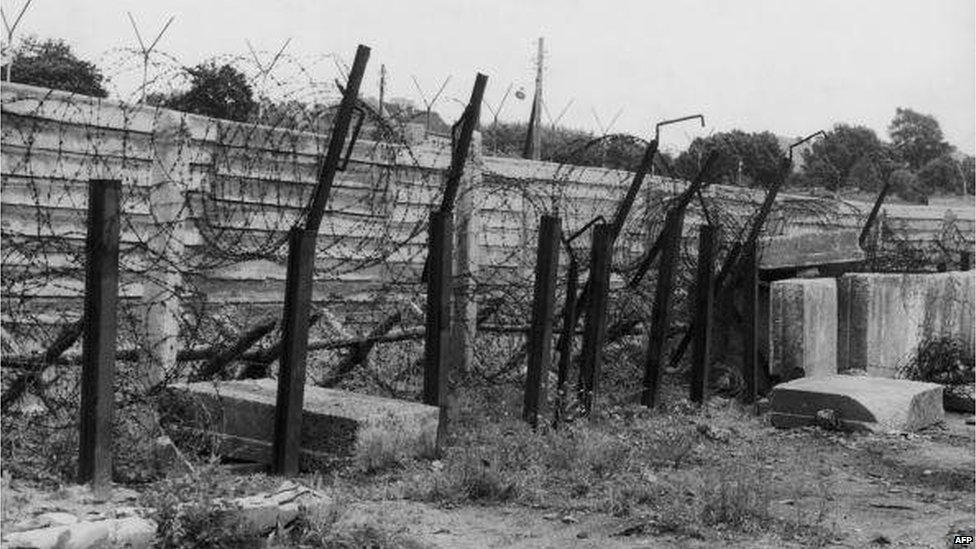
A section of the Berlin Wall in 1962
Israel began building barrier in and around the occupied West Bank in 2002: 720km planned by completion
India has fenced much of the 740km Line of Control (LoC) that divides Indian and Pakistani-administered Kashmir
Demilitarised Zone (DMZ) between North and South Korea created in 1953 heavily guarded on both sides: 250km long and about 4km wide
Saudi Arabia is building a fence along its border with Yemen: 1,800km
The Berlin Wall (20th Century) divided Berlin from 1961 to 1989: 155km
Hadrian's Wall (2nd Century), divided the Romans in England from Scotland: 117.5km
The Great Wall of China (began in 5th Century BC), a series of walls protecting China's northern border: 21,196km, built up over several centuries

- Published19 August 2015
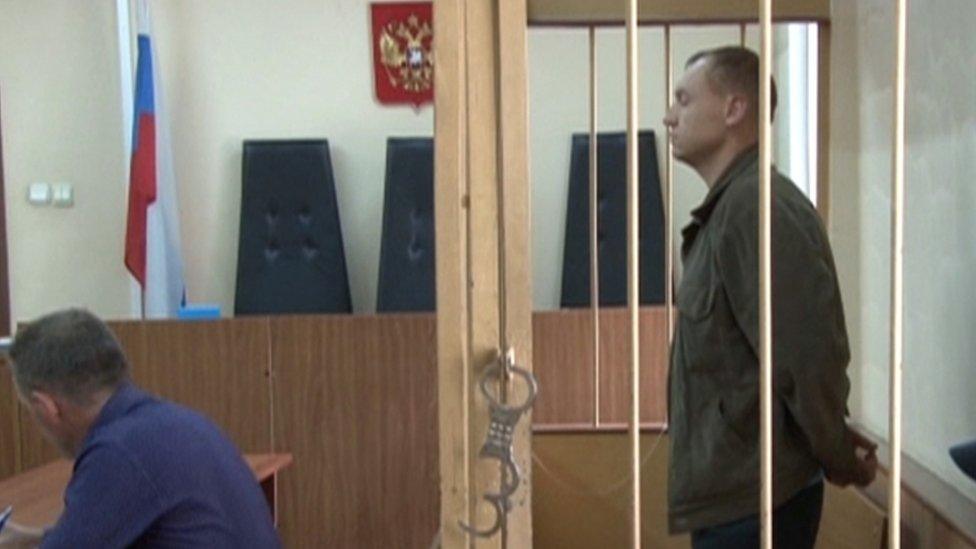
- Published6 March 2015
- Published23 July 2024
